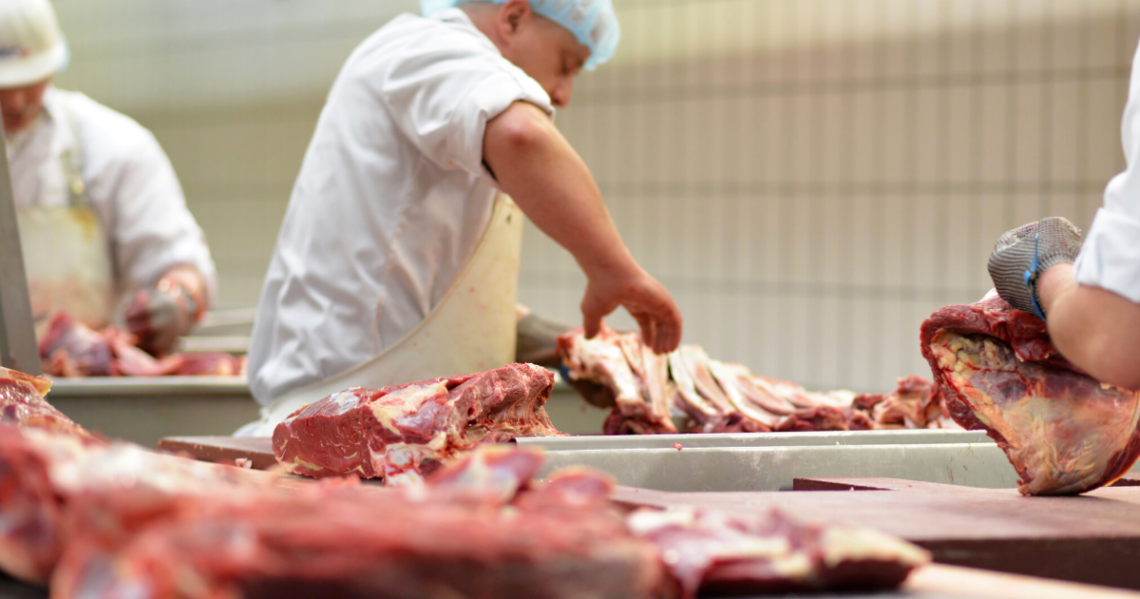As we have been discussing recently in various episodes and posts, the pandemic that we are all dealing with is causing complications for the food supply. And this week we are seeing grocery stores and others limit meat purchases due to supply constraints. We previously talked about the way some people buy meat locally, sometimes direct from a farmer or via a local butcher.
While buying locally or direct is definitely an option, the idea of shifting a large amount to a different system is complicated as are the various steps between farmer and plate. And many farmers have cattle, pigs, etc ready to go but with closures of some really big processing plants, could someone just ship a few cattle to my local butcher shop?
Farmer Jenny Rohrich of Prairie Californian grew up in a family where local meats were the family business. Her family owns Chico Locker & Sausage in Chico, California — the local butcher for some of the farmers I know. Although she lives on the North Dakota prairie with her husband and their growing family, she shares a wealth of experience in this space.
Jenny posted this on a personal Facebook page and said I could share it here to help people understand some of what’s happening with meat processing.
Let’s talk about meat inspection because with these large packing plants shutting down and supply and demand issues in the meat industry, I feel like not many people realize why their favorite local butcher often can’t just buy up animals to butcher in house and then sell in their store. The issue is inspection and regulations surrounding inspection. And it has been this way for decades upon decades.
In order to resell meat of any type, it must be butchered under federal inspection. Federal inspection is different from state inspection in many ways: first being an FSIS (USDA’s Food Safety and Inspection Service) personnel is present at all times while slaughter operations are taking place. That federal inspector first inspects the animals live as well as watching the ENTIRE slaughter process and then does a carcass by carcass evaluation. The inspector literally holds the key to the locked USDA inspected stamp that is put on each and every carcass butchered under federal inspection.
There are many other facets to inspection under this classification some including: the inspector also does an organ biopsy sent off for testing to ensure no antibiotic residue, plants are also required to take random ground beef samples regularly and send it off to test for potential bacteria like E.coli, etc., and there are strict protocols for things like cleaning, storage, distribution, and even labeling. Every step of the food chain the meat runs through is analyzed under a federal inspector.
Basically, federal inspection ensures that the plant is maintaining the most stringent of food safety standards. And as a result, meat that is processed under this federal inspection can essentially be resold anywhere. It can be wholesale, sold to restaurants, or simply put into the retail market. Any meat you are buying from any retail store has been processed under that classification.
This differs from state inspection (where depending on the state), often the same standards are not required and much of the analyzing every step of the food chain is mostly the responsibility of the plant itself versus the federal inspector. A state inspector is still present (not at all times) to oversee paperwork, processing, labeling, storage, and sometimes slaughter to ensure that the plant is maintaining the required state standards for inspection. Some states have adopted an inspection classification called Equal to, meaning the state recognizes their classification of inspection as “equal to” federal inspection within the state (interstate commerce is not allowed), however many states do not recognize this type of classification.
So why can’t all our favorite local butcher shops just become federally inspected? In many cases, it would require a complete renovation of the facility, sometimes the burden of expenses for testing or tracking origin paperwork is too great, sometimes the plant couldn’t take the risk that would result from a recall in say, something like a labeling error. There are a variety of reasons as to why small plants cannot and many do not pursue a federal inspection classification and they all reflect back to the fact that the burden of regulation when it comes to meat inspection is often too great. Another issue is a nationwide shortage of inspectors, so even if plants are able to obtain a federal certificate of inspection, they are not guaranteed enough inspectors to run at full capacity.
Now, do I want regulation to be done away with completely? Absolutely not. A safe meat supply and plants who maintain high standards of safety are so important. However, any small butcher shop will tell you the woes that the burden of inspection puts on their business. And has been doing so for many decades. The politics and issues surrounding that is a completely other conversation, however, I just wanted to share this to enlighten people on this is how our current inspection system works, whether you agree with it or not.
And if you are curious in learning more, have a conversation with your favorite local butcher and ask how you can help them!
Local butchers are awesome and can do great things in our communities, but understanding other parts of the system they are part of helps us not expect too much from any part of the chain.




One comment on “Can my local butcher help with the shortage of meat now?”